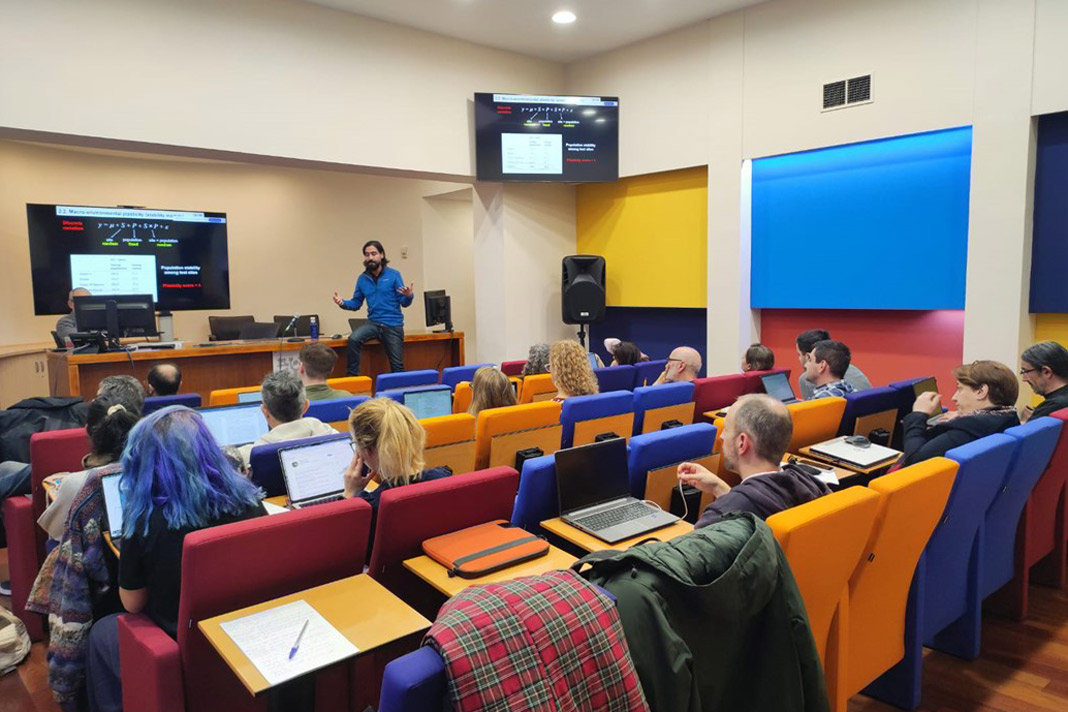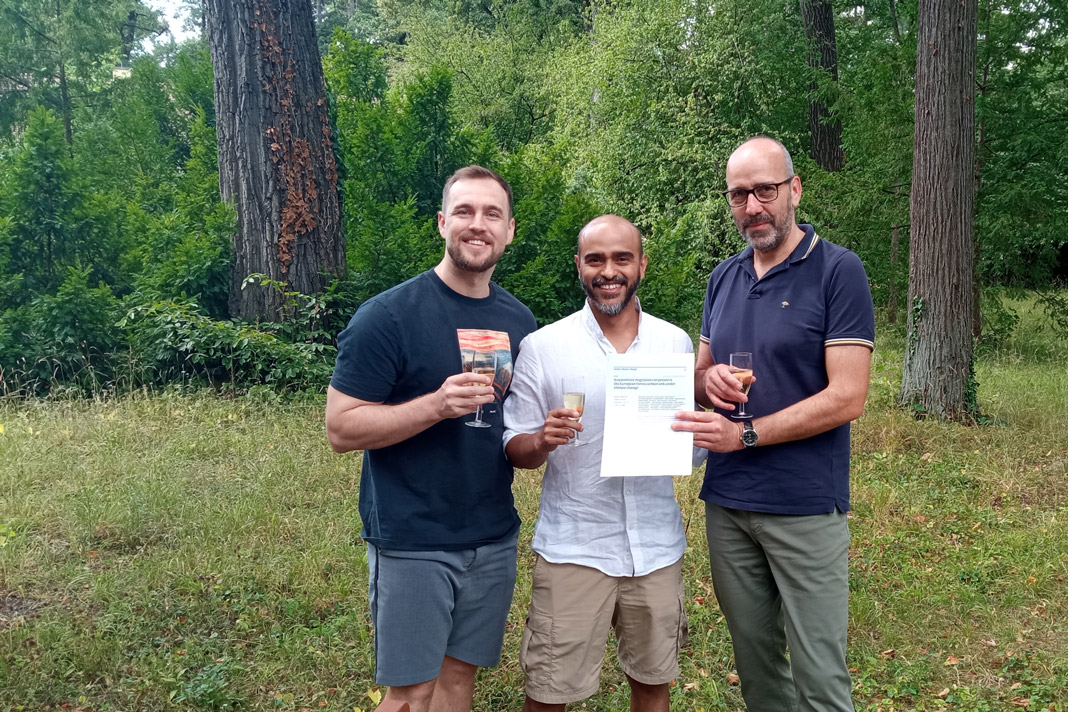IUFRO workshop in Madrid brings together global experts on forest genetic common gardens
Experts from 24 countries convened in Madrid for the IUFRO workshop on Forest Genetic Common Gardens, discussing cutting-edge research in genetics, breeding, and climate-adaptive strategies for forest tree species.
The IUFRO Working Group 2.02.13 ‘Breeding and Genetic Resources of Mediterranean Conifers’ successfully held a hybrid workshop on Forest Genetic Common Gardens in Madrid from 27 to 29 November 2024. The event was organised in collaboration with IUFRO Units 2.04.00 ‘Genetics’ and 2.04.02 ‘Breeding Strategy and Progeny Evaluation’. It took place at the headquarters of the Consejo Superior de Investigaciones Científicas (CSIC) under the local coordination of Dr Ricardo Alía. The workshop was co-sponsored and supported by the EU projects OptFORESTS and FORGENIUS.
In total, 24 countries from across the globe were represented, and 114 participants attended the workshop, either in person or online. Given that common garden experimental networks are essential infrastructures providing experimental data to enable research in forest tree breeding, selection methods, adaptive potential, plasticity, evolvability, conservation, and the sustainable use of forest tree species under climate change, the key issues raised and discussed during the workshop covered a wide spectrum within the fields of genetics and breeding.
These issues ranged from exploring ways to examine the state-of-the-art of existing genetic trial networks to advanced experimental designs, the application of new tools (phenotyping, genotyping, modelling), data sharing - including repositories and analytical methods, and the need for recommendations for the establishment and analysis of new genetic trial networks. They also addressed the traits that need to be considered in the face of climate change and the potential of multi-trait selection methods. The 28 oral presentations offered covered all these topics and triggered lively and thought-provoking discussions.
Further details about the workshop can be found at: https://genfored.es/en/workshop-on-forest-genetic-common-gardens/







